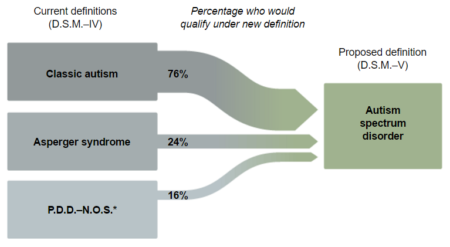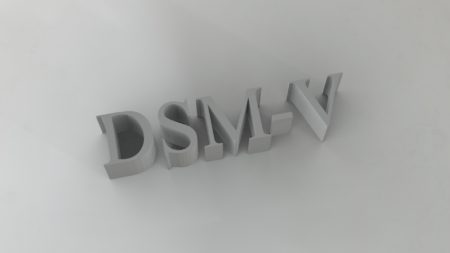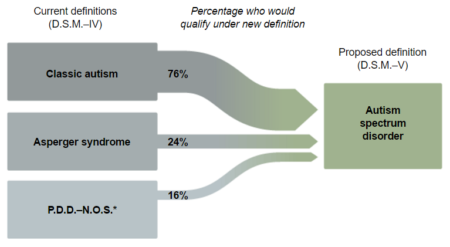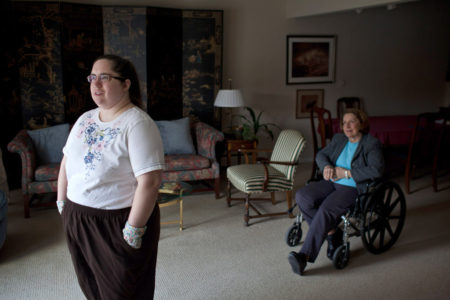The following debate originally took place on my Facebook wall, upon my post, “Estimates Indicate Redefinition of Autism Within Fifth Edition of DSM Manual Will Significantly Affect Diagnosis Numbers“…
Rayn: According to three separate research estimates, under the proposals of the new DSM V, due out in 2013, up to 75% of those previously diagnosed as having Aspergers Syndrome will no longer qualify as being on the Autistic Spectrum, as well as up to 85% of those with PDD-NOS…
Redefining Autism:
http://www.nytimes.com/interactive/2012/01/20/us/redefining-autism.html
Jessica G.: So much fear mongering. So much. The research was based off of old guidelines, and old articles. The core of autism isn’t being changed at all. I’ve posted lengthy discussions on this already, people need to not worry so much.
Rayn: whole thing has been COMPLETELY POLITICIZED, through and through. To begin, the Autistic Spectrum doesn’t really belong in the DSM, in the first place! It is a neurological condition, not a mental illness! (I wrote about this in my 2009 blog on the topic).
Second, few are discussing the impact that fully dropping the terms “Asperger’s syndrome” and “PDD-NOS” from medical jargon will have on the autistic community. Many strongly identify with the aforementioned phrases, personally, and among their peers, so they will not want see them go. Much of Autistic cuture is based around them, and large numbers will fight hard to keep them alive. Even more will battle against the next logical step for neurotypical society: ever-increasing popular usage of the degrading, inappropriate eugenicist phrases, “high-functioning” and “low-functioning” to distinguish Autistic individuals from each other. This will result in a large backlash from the Autistic community. Also, if you’ll note, with the new terminology, Asperger’s SYNDROME will now officially become a DISORDER, too – something that will not be embraced by all parties, either! And, of course, the very presence of the new definition within the DSM, much like the old ones it now covers, still implies the ridiculous notion that a “cure” is the always-desired route for a hard-wired neurological condition! Ha!
Finally, with the New York Times article referencing a sharp reduction of “skyrocketing” numbers of autistic diagnoses, this appears to be more about denial of available services than anything else!
Here are the proposed DSM-V changes:
http://www.dsm5.org/ProposedRevisions/Pages/proposedrevision.aspx?rid=94
There is a tab on that same link for DSM-IV definition for Autistic Disorder, so that you can read it right after. But, it can also be found here, as well:
http://www.autreat.com/dsm4-autism.html
Now, here is the DSM-IV definition of Asperger’s Syndrome:
http://www.autreat.com/dsm4-aspergers.html
DSM-IV PDD-NOS:
http://www.pervasivedevelopmentaldisorders.com/dsm-iv.htm
As far as general symptoms go, you are correct, Jessica. The core definition for the new “Autistic Spectrum Disorder” in the DSM V combines most features of “Autistic Disorder,” “Asperger’s Syndrome,” and “PDD-NOS” in the DSM IV. However, let us not overlook the new and ominous criteria (D), requiring that the new list of “symptoms together limit and impair everyday functioning.” This factor will most assuredly effect the rate of diagnosis, by far, which will become fleeting for those individuals who are able to sucessfully manage their Autistic symptom within our neurotypical society! Like I said in the beginning: it’s POLITICS! And, the Autistic community is caught right in the middle, like always! (Click Here to Continue Reading This Post)












